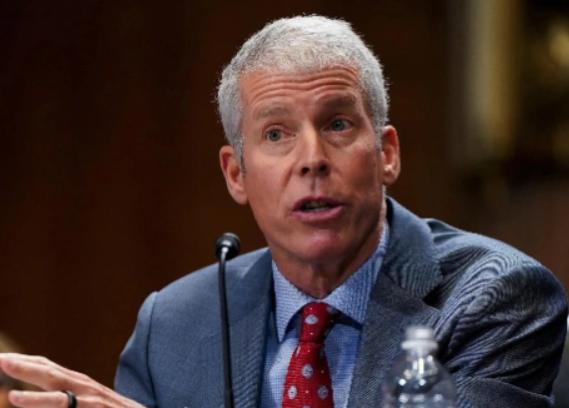
On September 10th local time, US Energy Secretary Chris Wright stated that Europe has committed to completely stopping the purchase of any form of Russian natural gas by 2026. Wright, in an interview with CNBC, pointed out: "They clearly stated that by the end of 2026, they will completely stop importing any form of Russian natural gas. Before the end of this year, they can still purchase Russian natural gas through spot contracts. In 2026, they can still purchase natural gas from Russia through contracts. But once January 1st, 2027 arrives, Russian natural gas will completely exit the market." He claimed that this trade is providing funds for Russian President Putin's "war machine." He believes that European countries should purchase US liquefied natural gas, gasoline, and other fossil fuel products to fulfill the terms of the US-EU trade agreement. Wright emphasized that the EU needs to fulfill the trade agreement reached with the US in July 2025, which requires the EU to purchase US energy products worth 750 billion US dollars (including liquefied natural gas, gasoline, etc.) by 2028. He stated that purchasing US energy by the EU is an "economically beneficial choice" and is in line with the common goal of ending the conflict between Russia and Ukraine.
This move by the US Energy Secretary has complex and far-reaching impacts on various fields, including the economy. Firstly, it has an impact on the EU economy. The EU's dependence on Russian energy is high. Although imports have significantly decreased in recent years, Russian natural gas still accounts for 14% of the EU's total fossil fuel imports. Completely stopping the purchase of Russian energy will force the EU to seek other energy sources, such as US liquefied natural gas, Middle Eastern oil, etc. However, these alternative energy sources are usually more expensive and have higher transportation costs, which will lead to an increase in energy costs in the EU, thereby pushing up the overall price level. The increase in energy costs will increase the operating costs of enterprises, reduce their competitiveness, and potentially lead to layoffs or closures. At the same time, high prices will reduce consumers' purchasing power, suppress consumer demand, and further drag down economic growth. The German Central Bank warned that if the EU immediately bans Russian energy imports, it will trigger a further surge in energy prices and face a deep recession.
Secondly, it has an impact on the US economy. The trade agreement between the US and the EU reached in July this year includes a commitment that the EU will use US liquefied natural gas and nuclear fuel to replace the oil and natural gas imported from Russia. The EU's cessation of purchasing Russian energy will help fulfill this trade agreement clause and further strengthen the US-EU economic relationship. The US Department of Energy has called on the EU to stop purchasing Russian energy, aiming to encourage the EU to purchase more US energy products. This will bring opportunities for US energy exports and increase the income and employment opportunities for US energy companies.
Thirdly, it has an impact on the global energy market. The EU's cessation of purchasing Russian energy will change the global energy supply and demand pattern, leading to fluctuations in energy prices. The reduction in Russian energy exports may cause global energy supply shortages and push up energy prices. At the same time, the EU's search for alternative energy sources may face the risk of unstable supply. Additionally, relying on a single energy source or a few suppliers will increase the energy security risks of the EU. The EU's cessation of purchasing Russian energy will prompt changes in the global energy trade pattern. Russia will have to seek new energy export markets, while the EU will strengthen cooperation with other energy-producing countries. This change may lead to a redistribution of global energy trade flows and a rebalancing of the energy market.
In conclusion, the US Department of Energy's call for the EU to completely stop purchasing Russian energy is like a boulder thrown into an economic lake, causing ripples in the EU, the US, and the global energy market. This incident once again highlights the intricate interplay of economic and political factors behind the energy competition. The future course of events remains highly uncertain and warrants continuous attention.

報告顯示,中國電力投資加速增長,預計2024年電網基建投資將超過5300億元。
近日,市場迎來了一則引人注目的消息:工業巨頭3M公司(MMM.N)在本周五公布了其季度業績報告,隨後股價飆升至近兩年來的
最近,外媒給OpenAI算了筆賬,今年可能要血虧50億美元。
近日,巴黎奧運會和世界鐵人三項協會聯合發布了一項重大決定,宣布因塞納河水質污染問題,原定於近期進行的奧運會鐵人三項首次下
當地時間7月18日,法國巴黎發生了一起令人震驚的持刀襲警事件。
近期,一則重大消息在國際舞臺上引起軒然大波,馬來西亞宣布加入金磚國家。
調查發現,互聯網和智能手機的使用幹擾了韓國近五分之一學生的生活。